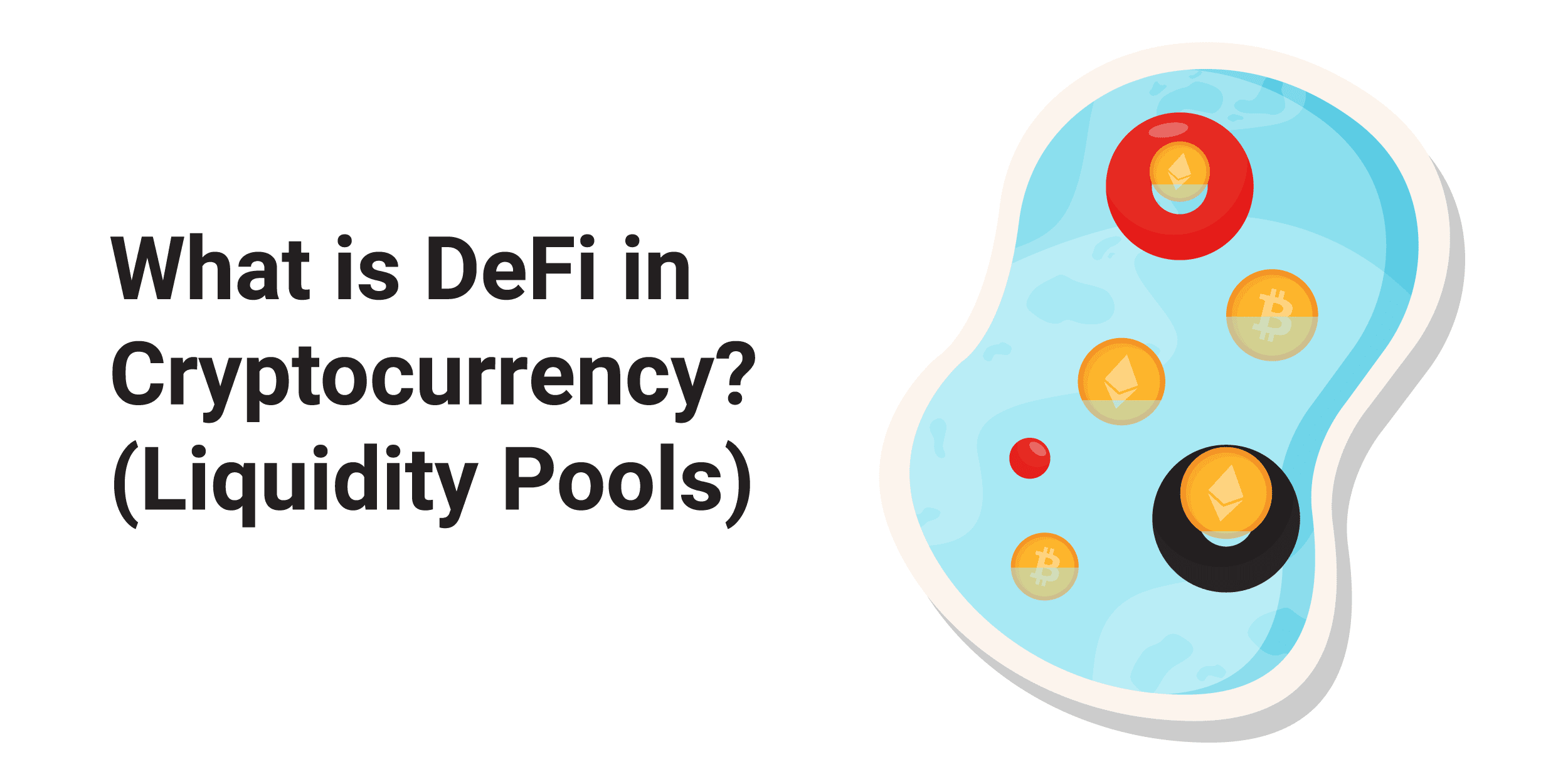
What is DeFi in Cryptocurrency? (Liquidity Pools)
In cryptocurrency, DeFi, Decentralized Finance, means that currency transactions can take place on-chain without the intervention of a centralized authority. DeFi aims to jettison intermediaries, such as banks, who bear influence over your funds.
With cryptocurrency, you can store your digital assets in something called a wallet or ledger. These storages act as a bank, but without its oversight or interference - you’re the only one who possesses the key to this bank.
Why is this important?
For the sake of clarity, let’s take a few steps back.
In the past, people would create cryptocurrency tokens as either utility or security tokens. Utility tokens provided some real utility in a mobile or web application. Security tokens would represent an asset on-chain.
Both were decent ideas, albeit problematic; readily funded, few projects were successful. The best result was that your project got listed on a centralized cryptocurrency exchange, paired with ETH or BTC, and possibly survived.
Why was this the best result?
In part, because the centralized authority, the “Exchange”, e.g. Coinbase, Kracken, or Binance, played the role of kingmaker. To get a new asset on an exchange, you needed so much support on social, so many users, and so forth. If the “Exchange” didn’t like your project, you’d have to pony up a mountain of cash to get listed.
Many people thought getting listed on an exchange meant that you had hit a home run, but this is where the real work just began. Where would the price and liquidity for your asset come from? You’d have to reach out to the Market Makers, who would provide the liquidity for your pairing.
This would also incur a considerable expense!
The whole process was painful; it’s no wonder so few tokens survived.
Now, cryptocurrency is back in the news!
What changed? (DeFi)
In a word, Uniswap. With a staggering $2 billion worth of crypto invested into their liquidity pools, Uniswap is now the undisputed master of DeFi.
Uniswap is an automated liquidity pool implemented by a system of non-upgradeable contracts on Ethereum licensed under the GPL, open-source software license. Uniswap enables anyone to be a liquidity provider for a pair of assets by depositing an equivalent value of each underlying token, thus eliminating the need for Market Makers and centralized exchanges.
If someone wants to buy your new token with ETH, they can. Instead of requiring an ICO or IEO, you can create a stable coin by leveraging a Uniswap Liquidity Pool where you back it with ETH. Now, your stable coin has value and is priced.
Uniswap is open source. Even though they’re ventured back, anyone who understands what they’re doing can either fork it or build liquidity pools for their assets.
In the past two weeks, we’ve seen scams rake in exorbitant sums of capital: SushiSwap and Kimchi, by forking Uniswap. Both SushiSwap and Kimchi introduced tokens that could be harvested by staking Uniswap liquidity pools in an attempt to shift assets from Uniswap’s exchange to theirs.
Uniswap responded by issuing their own token, the Uni, which is now worth $4.18 per Uni.
What else brought DeFi buzz?
The recent freedom to do what you want with your money has captivated attention on a global scale, including governmental scrutiny. In July 2020, the US Securities and Exchange Commission (SEC) began its transition to embrace DeFi when it approved its first Ethereum-based platform, Arca.
This is a major breakthrough for the cryptocurrency space, as the SEC’s hostile regulations have deemed more projects unfit than fit in recent years. One of the projects on the SEC’s unqualified list was Basis, a New Jersey-based company which was required to return $133 million in capital to investors.
The government isn’t the only major institution getting involved; big banks are as well! Seventy-five of the world’s largest banks are experimenting with blockchain technology to augment payments as part of the Interbank Information Network, trail-blazed by JPMorgan, Australia and New Zealand Banking Group, and the Royal Bank of Canada.
Another motive for the recent fanfare has been the global pandemic - best known as COVID-19, or coronavirus. The pandemic and its impact on markets have resulted in lower interest rates around the globe in hopes to bolster the economies large and small.
So much widespread, sustained uncertainty has raised the spectre of inflation, compelling many to adopt cryptocurrency-based solutions. Compound, for example, offers a stable 6.75% interest rate for those who make use of the cryptocurrency stablecoin Tether.
Conclusion
Now, for the first time, people can leverage many of the same financial services, but on a decentralized network. The autonomy of fast, secure, and transparent transactions has driven the rapid global adoption of blockchain and decentralized technology.
This is only the beginning. As blockchain technology evolves, use cases will follow suit, and consequently, its widespread adoption. To stay up to date with the latest DeFi news, visit here.
